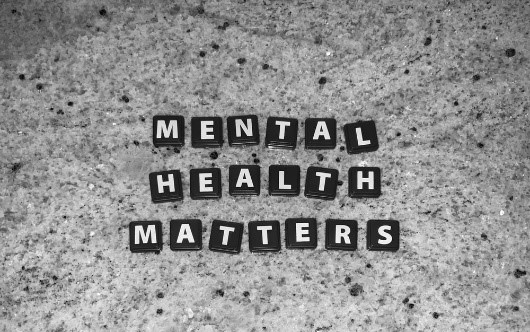Workers' Stories in the COVID-19 Era: Installment #15
February 6, 2022
Written by Christina Love (Undergraduate Student, Indigenous Studies and French)
Edited by Tinu K. Mathew (PhD Student, School of Human Resource Management)
In the fifteenth installment of our series Workers’ Stories in the COVID-19 Era, we interviewed Ta'Kaiya, a former administrative assistant at a Toronto mental health clinic. They speak about the absurd waitlists to access treatment and services as well as the higher intake volume as a result of the pandemic. Concerning their experience with the Canada Summer Jobs program, they state that it isn’t right to only subsidize minimum wage. In all, Ta'Kaiya illustrates the importance of workers’ rights and an increase in mental healthcare services.
For privacy, all names have been changed to protect the identities of our interviewees.
Interview
Christina: Can you describe your job, how long you worked there, if it was remote/in-person/hybrid, and some typical tasks?

Ta'Kaiya: Over the summer of 2021 I worked at a mental health clinic that was a division of an immigrant services centre in Toronto. I worked there officially between the months of May to the end of September, but I had prior experience volunteering there pertaining to requirements for my Certificate in Refugee and Migration Studies. In both roles, I was an administrative assistant. I was hired on after my volunteering concluded through the Canada Summer Jobs program, and then received a contract extension from the organization itself after the funding expired.
The tasks I had to do were things such as contacting clients and patients to remind them of appointments, scheduling new appointments, managing files, and maintaining contact with our service providers. I worked in tandem with my supervisor who taught me many of the clerical skills required to perform my job. Initially some of the work was remote and some was in-person, but it transitioned to being mostly in-person as my contract progressed and lockdowns lifted.
Christina: How has the pandemic impacted your work and working experience?
Ta'Kaiya: The pandemic significantly impacted my working experience. When I first started with them, it seemed like there was a massive amount of work to do in a miniscule amount of time. Aside from myself, there was only one other admin assistant, and there was a significant backlog of work because the previous person in my role was unable to fulfill their duties due to chronic illness. I really didn’t have the skills to do everything they were asking of me, so I did a lot of learning on the job.
…there was a massive amount of work to do in a miniscule amount of time.
Everyday was fairly busy but my hours remained regular and consistent. There was a lot of clients coming into the office as well as a deluge of phone calls.
Christina: What were some of the things you weren’t prepared for?
Ta'Kaiya: I really wasn’t prepared for how busy the centre could get at times. I’ve heard it from others that there was a significant uptick in clients and patients because of the pandemic. Effective time-management was essential, but I was exhausted by all the work. I also wasn’t prepared for how fast I’d have to learn and apply the different skills I was being taught due to the sheer number of people who were coming in as lockdowns were lifting and they were trying to access services.

Christina: What have you noticed about mental health during the pandemic?
Ta'Kaiya: Speaking to my own mental health, it wasn’t significantly impacted by working this job during the pandemic. As for what I’ve observed about mental health in general, I can say that we received a lot of phone calls from prospective patients and clients who were seeking psychiatric services and counselling. I also saw many people accessing programs relating to domestic violence, problems with gambling, substance abuse, etc.
With regards to our capacity for psychiatric care, our centre unfortunately had a two-year waitlist. One of the psychiatrists was Italian-speaking and the other spoke Farsi and Arabic. Despite this, there were many clients and patients who needed counsellors and psychiatrists who speak a wider array of languages, especially since the centre caters to refugees, newcomers, and immigrants. Counselling was generally more accessible than psychiatry in terms of expected wait, but it was still a bit slow. We tried to help as many people as possible, but there were some that we couldn’t assist and who we referred to other mental health services.
…there were many clients and patients who needed counsellors and psychiatrists who speak a wider array of languages, especially since the centre caters to refugees, newcomers, and immigrants.
Christina: Was there an increase of mental health supports offered, either quantity or diversity, that catered to needs expressed by the pandemic? Do you think what was available was enough?
Ta'Kaiya: I think that the services offered covered quite a wide range of concerns pertaining to mental health. We had psychiatric services, general counselling, counselling for domestic violence, some people would be court-mandated to take partner abuse response programs, we had a gambling program, programs for the elderly, a program specific to newcomers and refugees, there was also family counselling. We didn’t really have something explicitly in response to the pandemic, but programs like the domestic violence one saw more people in it due to the pandemic.
Christina: Do you think that what was available was enough?
Ta'Kaiya: Yes and no. I think that the existing programs covered a wide breadth so for people who just needed something like counselling, they’d be covered. The real issue was the waitlist. There are also a lot of hoops to jump through for intake, so we couldn’t really respond to crisis calls and had to refer them elsewhere. Having crisis workers would be much appreciated in that community. Again, to reiterate the languages thing, though there were interpreters available sometimes, it genuinely wasn’t enough and not enough languages were represented. They could have done to hire another clerical assistant or two to lessen the burden on existing staff and rotate duties more.
The real issue was the waitlist.
Christina: Did you find yourself to be more tired while you were working during the pandemic?
Ta'Kaiya: I’d say yeah, but not by a lot.
Christina: Were you unionized? And what was your experience with workers’ rights in that job?

Ta'Kaiya: I did not have a union representing me due to the nature of my contract. As far as workers’ rights go, I’d say I was treated fairly by most of the staff. However, I did notice that there was a lack of clarity around my expected tasks due to the supervisor not properly briefing me. They then tried to hold us accountable for their mistakes.
Christina: Were you compensated enough for your labour and were you getting hazard pay?
Ta'Kaiya: I was actually getting hazard pay, but not with Canada Summer Jobs. With CSJ, I was paid minimum wage, which I do not think is enough for this type of work, or any type of work really. Once I got the contract extension, my wage got bumped up to $20.40 per hour which did include hazard pay. I also had some vacation pay I was able to cash into. If it hadn’t been for school, I probably would have continued with the clinic because they did offer to extend my contract once it was about to expire.
While the second contract was better considering the pay increase, for the amount of work that an administrative assistant does on a daily basis, I would say that it is more reasonable to offer a starting rate of $25 per hour. You’re doing outreach with patients, you’re doing admin work, you do miscellaneous office tasks, you really do it all and it isn’t respectful to offer someone $14.35 or $20.40 for doing all that.
Christina: Did you feel safe working?
Ta'Kaiya: Yes. At the mental health clinic there weren’t a lot of people who were anti-mask, but anyone who didn’t come wearing a mask would be offered one and turned away at the door if they refused. I’d also give clients and patients a verbal COVID-19 screening over the phone prior to their appointments.
Christina: If you had ultimate power, what changes would you make to that job specifically and to labour in general?
Ta'Kaiya: For that job specifically, I’d definitely add more admin assistants and pay them well. A lot of priority is given to hiring service-oriented positions, but administrative positions are also required in order to make things run. Lunch was also unpaid, and we’d have to alternate watching the phones during that time, which I thought was unfair. As a general thing, I’d increase the funding to the centre.
More broadly speaking, I think that workplaces should be unionized. I’d also increase EI and bolster access to various employment programs and mental health services. In terms of Canada Summer Jobs, they really should not be capping their funding at minimum wage – it’s an insult to us workers. If you have to take a sick day, I also think that you should still receive pay.
